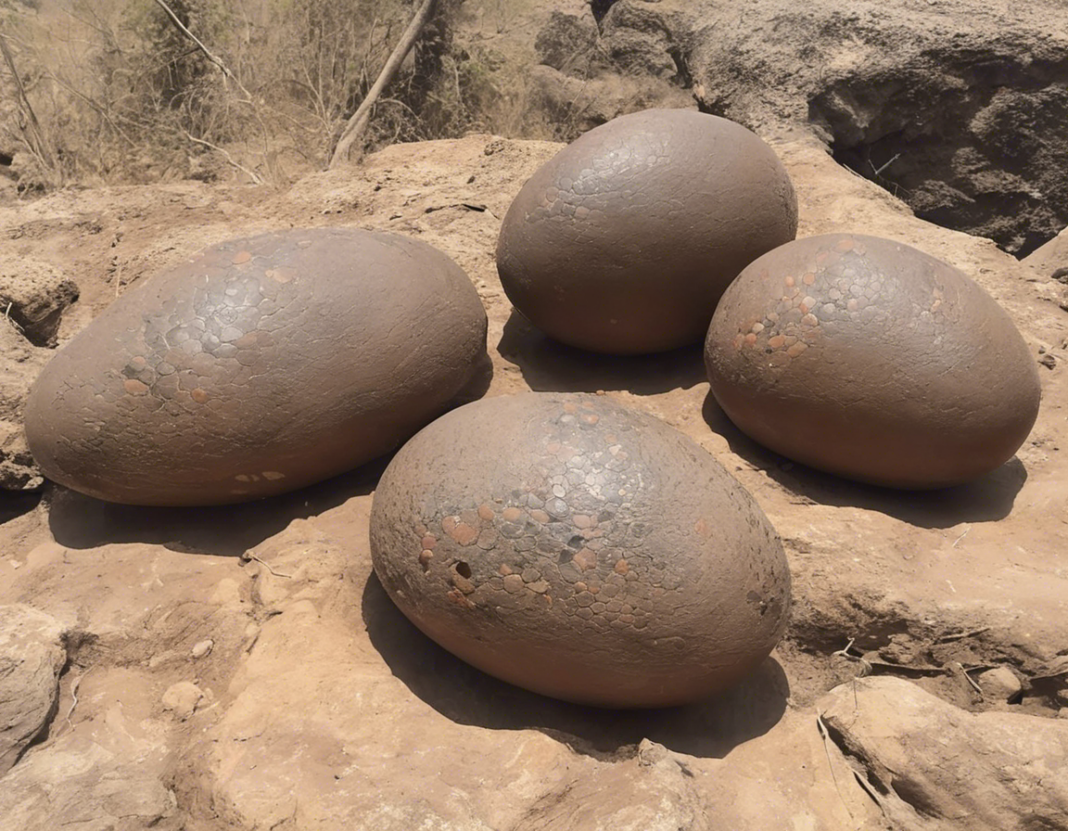Introduction
Madhya Pradesh, a state in central India, is well-known for its rich cultural heritage, stunning landscapes, and diverse wildlife. However, what many people may not be aware of is that Madhya Pradesh is also a treasure trove of dinosaur fossils and eggs. The state has garnered attention in recent years for its significant discoveries in the field of paleontology, particularly in the realm of dinosaur eggs. In this blog post, we will delve into the fascinating world of dinosaur eggs in Madhya Pradesh, exploring the discoveries, significance, and ongoing research in this field.
Uncovering the Prehistoric Gems
Madhya Pradesh has emerged as a prominent location for the discovery of dinosaur eggs, with several important findings shedding light on the prehistoric past. One of the most renowned sites in the state is the Dhar district, where a significant number of intact and fragmented eggs have been unearthed. These eggs, belonging to the Sauropod family of dinosaurs, provide valuable insights into the nesting behavior and reproductive strategies of these ancient creatures.
In addition to Dhar, other regions in Madhya Pradesh, such as Jhabua and Raisen, have also yielded fossilized eggs, further enriching our understanding of the dinosaur ecosystem that existed millions of years ago. The meticulous excavation and study of these eggs have revealed crucial details about the size, shape, and structure of dinosaur eggs, offering a glimpse into the reproductive biology of these majestic animals.
Significance of Dinosaur Eggs
The discovery of dinosaur eggs in Madhya Pradesh holds immense significance for the field of paleontology and evolutionary biology. These fossilized eggs provide researchers with valuable data on the development and growth patterns of dinosaurs, offering clues about their reproductive biology and parental care. By analyzing the shape and arrangement of the eggs, scientists can infer the nesting habits of various dinosaur species, shedding light on their behavior and social structure.
Moreover, the study of dinosaur eggs can also help in understanding the environmental conditions that prevailed during the Mesozoic era, providing insights into climate and ecosystem dynamics. By analyzing the microstructures of the eggshells, researchers can glean information about the incubation period, metabolic rate, and embryonic development of dinosaurs, allowing for a more comprehensive understanding of these ancient creatures.
Ongoing Research and Future Prospects
The discovery of dinosaur eggs in Madhya Pradesh has opened up new avenues for research and exploration in the field of paleontology. Scientists are continually studying these fossilized eggs using advanced techniques such as microscopy, geochemical analysis, and computer modeling, in order to unravel the mysteries of the dinosaur reproductive process. By comparing the features of different types of dinosaur eggs and correlating them with other fossil evidence, researchers aim to reconstruct the life cycles and evolutionary histories of various dinosaur species.
Furthermore, the conservation and preservation of dinosaur egg sites in Madhya Pradesh are of paramount importance to ensure that these invaluable specimens are protected for future generations. Efforts are being made to create geo-parks and museums that showcase the rich paleontological heritage of the state, attracting visitors and researchers from around the world.
Frequently Asked Questions (FAQs)
-
Q: How old are the dinosaur eggs found in Madhya Pradesh?
A: The dinosaur eggs discovered in Madhya Pradesh date back to the Mesozoic era, approximately 65-250 million years ago. -
Q: What species of dinosaurs do the eggs in Madhya Pradesh belong to?
A: The fossilized eggs found in Madhya Pradesh are predominantly from Sauropod dinosaurs, known for their large size and long necks. -
Q: How are dinosaur eggs formed and fossilized?
A: Dinosaur eggs are formed through the process of oviparous reproduction, where the female lays eggs externally. Fossilization occurs when the eggs are buried and mineralized over millions of years. -
Q: What can the study of dinosaur eggs tell us about dinosaur behavior?
A: Analysis of dinosaur eggs provides insights into nesting habits, incubation periods, and parental care behaviors of extinct dinosaur species. -
Q: Are there ongoing excavation projects in Madhya Pradesh to discover more dinosaur eggs?
A: Yes, researchers are actively conducting excavations in various regions of Madhya Pradesh to unearth and study additional dinosaur egg specimens.
Conclusion
The discovery of dinosaur eggs in Madhya Pradesh represents a significant milestone in the field of paleontology, offering a rare glimpse into the reproductive world of dinosaurs. These fossilized eggs serve as windows to the past, allowing researchers to reconstruct the lives and behaviors of these magnificent creatures that once roamed the Earth. As ongoing research continues to unravel the mysteries of dinosaur eggs, Madhya Pradesh stands as a beacon of paleontological exploration, beckoning enthusiasts and scientists alike to delve deeper into the secrets of the prehistoric world.

